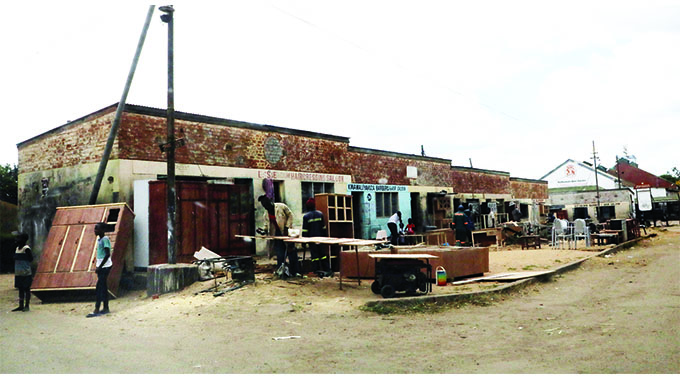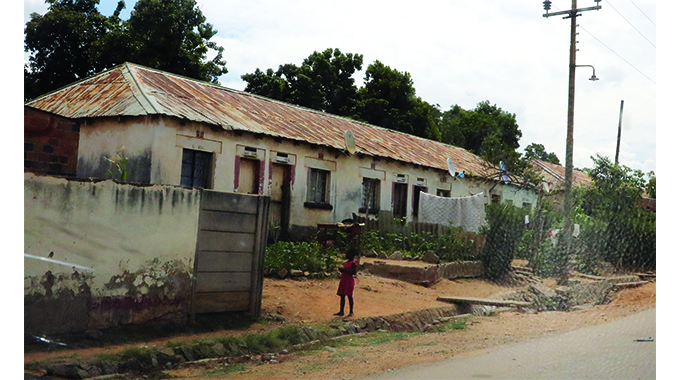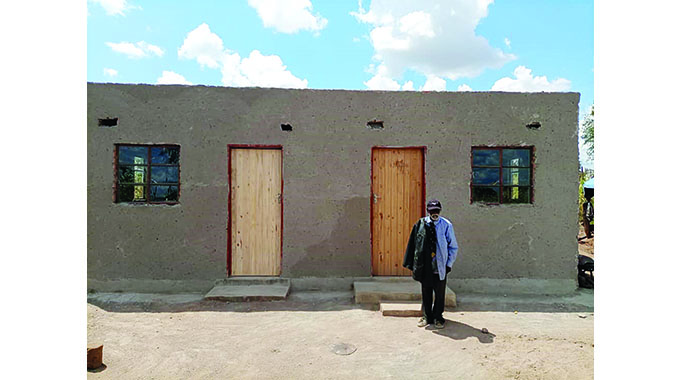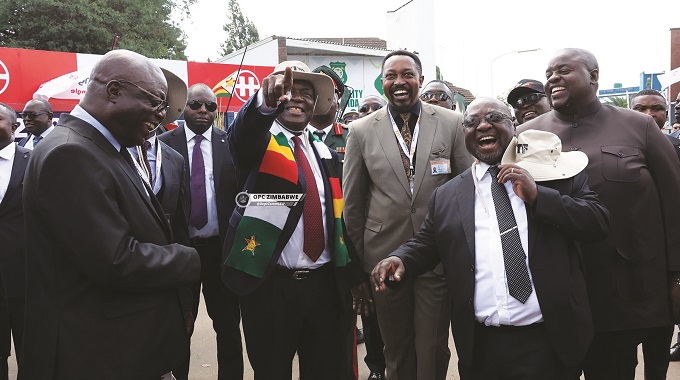Legislators lobby for rehabilitation of old suburbs

Nqobile Tshili, Chronicle Reporter
LEGISLATORS are lobbying Government to allocate 2 percent of the National Budget towards rehabilitating infrastructure in old suburbs countrywide.
Infrastructure is crumbling in old suburbs such as Bulawayo’s Makokoba, Sidojiwe Flats, Mzilikazi and Luveve; Mbare and Dzivarasekwa in Harare and Mtapa in Gweru.
Already, Government through Bulawayo City Council is working on the redevelopment of Makokoba into a modern high-rise suburb.
BCC in 2019 had opened up tenders for contractors to come on board with plans on how they could redevelop the area.
The suburb has over the past experienced constant sewer pipe bursts which result in effluent flowing in front of homes exposing residents to water-borne diseases such as cholera and typhoid.
In other old suburbs such as Iminyela and Mabutweni, residents are still using communal toilets.
Council, working with development partners, started a project to construct individual ablution facilities per household nearly 10 years ago but the project is yet to be completed.
Iminyela and Mabutweni suburb residents also live in houses without title deeds and have lobbied council to transfer the homes to individual ownership as most of them have lived in them for more than 25 years.
In Parliament on Tuesday, MDC Alliance Dzivarasekwa MP Mr Edwin Mushoriwa moved a motion that was supported by both opposition and Zanu-PF legislators.
Mr Mushoriwa said Government should replace dilapidated water and sanitation infrastructure in old suburbs countrywide.

He said the country’s oldest suburbs were not designed to handle the number of people who are now living in those areas.
Mr Mushoriwa said local authorities have no capacity to replace the ageing infrastructure, hence Government should chip in.
“Worried that the situation prevailing in these old suburbs is a time bomb which may result in massive deaths due to the outbreak of diseases such as diarrhoea, cholera, typhoid and other social ills; Now, therefore, resolves that the Minister of Finance and Economic Development annually allocates at least 2 percent of the National Budget towards investment in new infrastructure to replace the dilapidated WASH systems in the old suburbs in cities, municipalities, towns and local boards countrywide,” he said.
Mr Mushoriwa said Makokoba was the first suburb to be built in Bulawayo in 1894 and was not designed to handle the population it has today.
He said Mbare and Dzivarasekwa in Harare as well as Mucheke in Masvingo are some of the country’s oldest suburbs that need revamping as they have a rich history and many people connect their urban migration to those suburbs.
“Either you were staying in the rural areas but when you were visiting your relatives, you would come either to Highfield, Mbare, Sakubva, Makokoba or Luveve. These suburbs Madam Speaker have got a rich history of this country and these places have moulded some of the best lawyers we have in this country, best engineers, politicians and many celebrated individuals that we have in this country. To that extent Madam Speaker, it is my view that we cannot allow those suburbs to die. We need to make sure that there is a mechanism to ensure those suburbs are rejuvenated, revitalised so that they continue to be urban centres,” he said.
Zanu-PF Gutu South MP Pupurai Togarepi said the old suburbs have been neglected since the colonial era. He said it was prudent for Government and local authorities to channel resources towards the redevelopment of the old suburbs.
MDC Alliance Luveve MP Ms Stella Ndlovu weighed in on the subject focusing her attention on Bulawayo’s old suburbs. She said Makokoba was 127 years old and for 35 years it remained the only suburb for Africans in Bulawayo before the establishment of Luveve 90 years ago with Mzilikazi being established 70 years ago.
Ms Ndlovu said failure to rehabilitate aged water and sewer infrastructure caused the outbreak of diarrhoea outbreak in Luveve leading to the death of at least 13 people last year.
“Many structures within Mzilikazi Township were named after King Mzilikazi, namely Mzilikazi Primary School, Mzilikazi Library, Mzilikazi High School, Mzilikazi Arts and Craft Centre.
“More townships were built in the post-World-War II era in what was later termed the Bulawayo African Townships and that included Barbourfields and Nguboyenja,” said Ms Ndlovu.
“Challenges in the suburbs; physical infrastructure, sewer and water pipes have dilapidated and deterioration has taken place big time because of age. The sewage bursts are an eyesore and also a breeding ground for mosquitoes and this leads to waterborne diseases such as cholera, dysentery and diarrhoea that took place last year. A lot of people fell sick and some were hospitalised and some died, especially in Luveve suburb.”
“The houses in Makokoba, Luveve and Mzilikazi were built for bachelors looking for employment opportunities. After independence, big families started to move in into the small bachelor rooms which exposes the people to infectious diseases such as Covid-19, HIV/Aids and tuberculosis. There is also invasion of privacy since a family of six to eight people will be sharing only a room. This puts a strain on the water and sewage infrastructure which best explains why sewer bursts are rampant in these areas,” she said.
She urged Government to demolish some of the structures and build decent flats for families. -@nqotshili










Comments